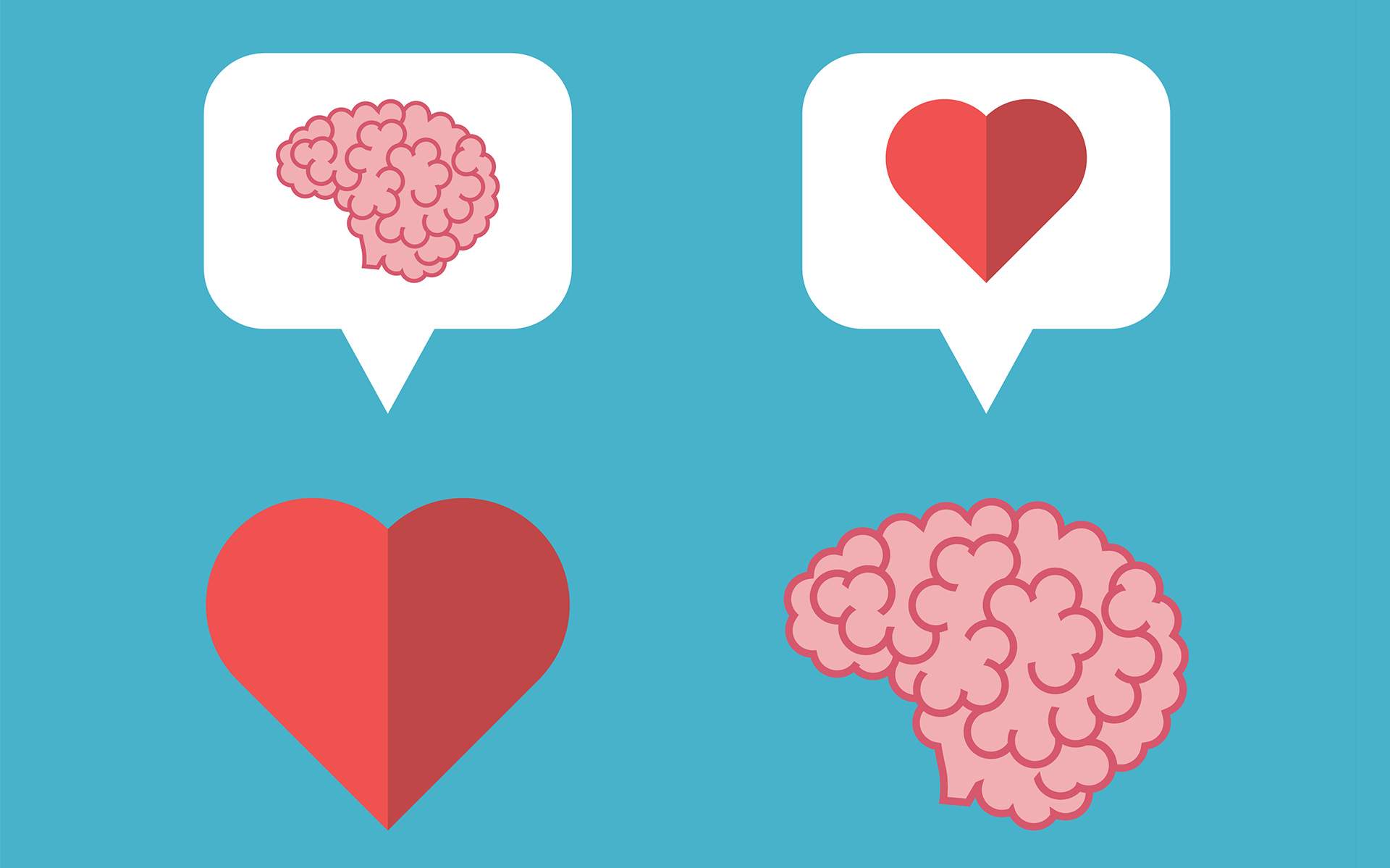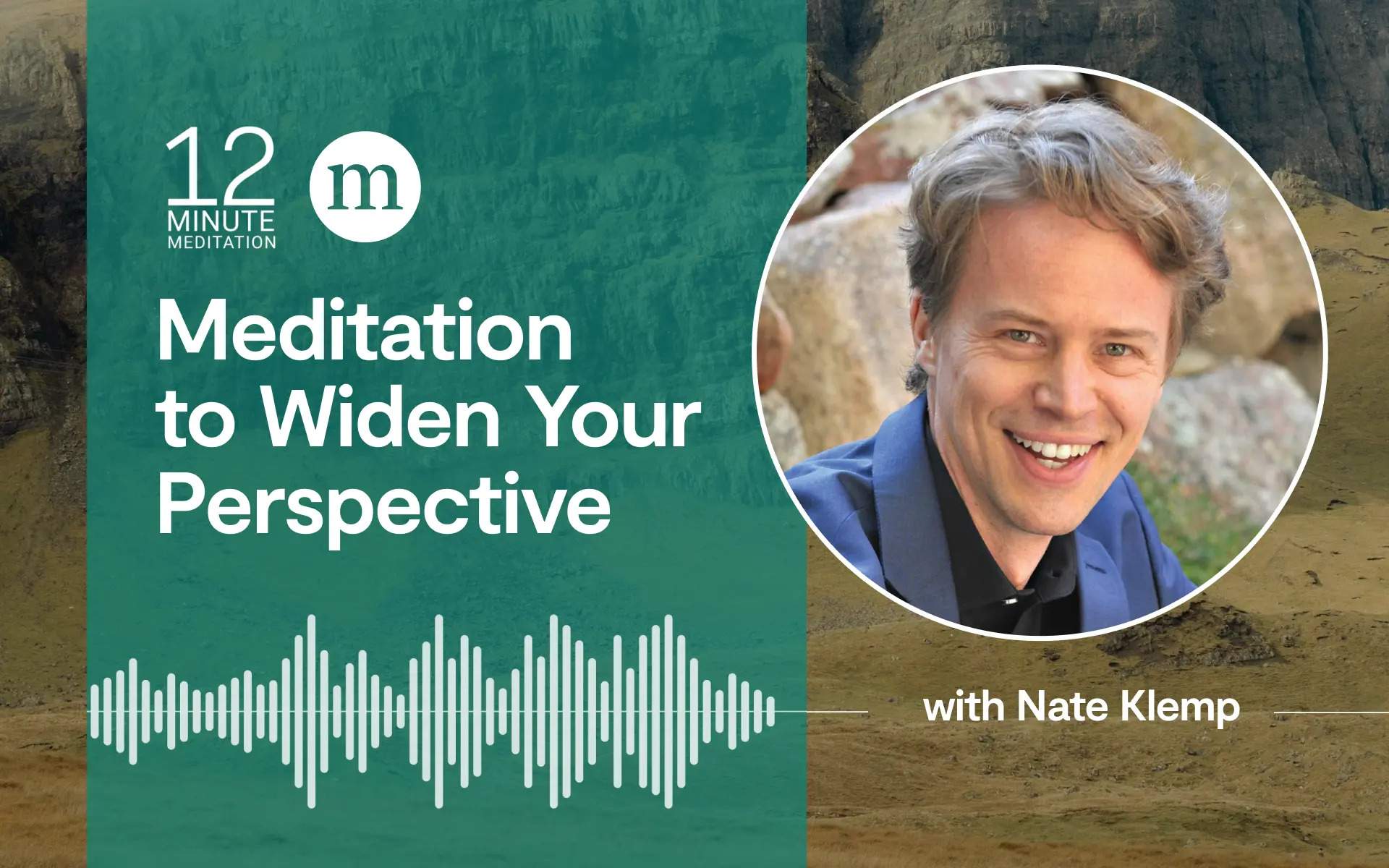Episode 12 of the Science of Happiness Podcast from the Greater Good Science Center, featuring Dan Harris in conversation with Dacher Keltner.
Science of Happiness
Dacher Keltner: Having a panic-attack in front of millions of viewers set Dan Harris on a path to seeking help for his depression and anxiety. He found it with meditation, which he says makes him at least 10% happier, which is also the name of his best-selling book and podcast.
On every episode of our show, we have a happiness guinea pig try out a research-based practice designed to increase happiness, resilience, kindness, or connection and then we dive into the science behind why it works.
Today it’s a real pleasure to welcome my friend Dan Harris as our happiness guinea pig. Dan is anchor for ABC News and author of the books 10% Happier and Meditation for Fidgety Skeptics. Dan, it’s great to have you on The Science of Happiness.
Dan Harris: Great to be on. Your thinking has been very influential on my thinking, so nice to be connected again.
Dacher Keltner: You know I wanted to sort of move into the deep background of your engagement in the contemplative world and the science that led to 10% Happier. You visited my lab and you were kind of searching. What was up?
Dan Harris: You know after I had a panic attack and went to a doctor who is an expert in panic and he asked me if I do drugs and I said yeah and he said OK, you know moron, mystery solved. And he pointed out that if you do cocaine with some regularity you will boost the amount of adrenalin in your brain artificially and that will make you more likely to have a panic attack. So that was a big aha moment for me and it kind of set me off on a weird windy path that ultimately led me to meditation.
Dacher Keltner: We’ve been doing a lot of research on getting veterans outdoors and in nature. And their profile sounds in some ways like your profile which is you know you see the atrocities of war maybe you’re affected physically or you affect somebody and you turn to self-medication and tough stuff follows. What was your what was your first taste of meditation?
Dan Harris: I was reading a book by John Kabat Zinn, “Wherever You Go, There You Are” and I don’t know why I just said “you know what? I’m going I’m just going to try this now.” And I got up off of my chair and didn’t tell anybody because it would have been very embarrassing. And I went into the room locked the door and sat on the floor and started to meditate.
Dacher Keltner: A closet meditator!
Dan Harris: I was a closet meditator. And you know that first experience is really intense because you just see how crazy you are. And that’s the point, actually. You know people often think that when they sit to meditate and realize, “Oh my god I’m just so all over the place”. It’s like trying to hold up a live fish in your hand. It’s really hard. People think oh I’m a failure I can’t do this, but actually no it’s seeing how crazy you are is the…is a victory. It’s hugely important because when you start to see how crazy you are the craziness doesn’t own you as much and so that was very clear to me because I was doing it in the right context. I had read John’s book and so I understood that seeing that you’re distracted means you’re doing it correctly.
Dacher Keltner: Yeah. You are not your thoughts as John Kabat Zinn says. You know, I want to return to anxiety because it’s interesting in our world, you know in many different worlds of people working hard and high stress work. that’s tough on your cardiovascular system and when you have one and you realize how exhausting it is, you sense that. How did how did this kind of immersion in meditation and the contemplative approaches, how did it work with your anxiety?
Dan Harris: I have suffered from anxiety and depression, so panic is just kind of like accelerated anxiety. But I have had anxiety and depression, which are often morbid to use a medical term of art since my whole life.
There’s been a bunch of science looking at meditation. I think it’s still very much in its early stages and often sort of overhyped by people like me you know are enthusiastic about meditation. But one of the areas where I think the research is the strongest is around meditation’s benefits for people with depression and anxiety.
Dacher Keltner: I agree. I totally agree.
Dan Harris: And the mechanism from my personal experience is right around what you said before that we are not our thoughts. So anxiety is future-oriented thinking, worrying, handwringing, and through the boosted self-awareness that one gets through meditation you start to realize, oh yeah this is just, these are just thoughts.
Maybe they’re connected to reality or maybe not or maybe. Even if they’re connected to reality, I’ve thought about it enough, it’s time to let it go. And that is that is incredibly useful.
Dacher Keltner: Yeah I agree. What did you build up that led you in terms of a practice that led to 10% happier?
Dan Harris: You know, I think there’s this sub conscious assumption that happiness happens to us. That it’s dependent upon, you know, external factors like the quality of our childhood, the quality of our work life, our marriage all of which are super important. But in fact what the science is showing us is that happiness is a skill that you can work on, that you can generate just the way you work on your bicep in the gym and, you know, we spend so much time on our bodies, on our stock portfolios, on our cars, and on our whatever and almost no time on the one filter through which we experience everything and that’s our minds. And so the idea that the mind is trainable that these qualities that we want—happiness, calm, peace, generosity, compassion, patience—that these aren’t factory settings that can’t be tinkered with that these are actually skills. That is a really radical and empowering notion and so I see that as the common denominator of everything I’m doing.
I embraced mindfulness meditation because there are thousands of flavors of meditation. But I liked mindfulness, because while it is derived from Buddhism, it is thoroughly secularized and there’s no metaphysical claims, no religious lingo. I started with five to ten minutes a day of basic mindfulness meditation. Then ultimately kind of went to a half hour a day and then a couple of years ago I took a big leap, which I moved to two hours a day.
Dacher Keltner: Are you serious?
Dan Harris: Yeah which is going to sound impressive but it’s actually not so impressive once you know that, I, my rule is I can do as many doses as I want, as many sits to use a meditative term of art, as I want throughout the day wherever I want, whenever I want, and my goal is just to accumulate up to two hours over the course of the day.
Dacher Keltner: Now what are all your colleagues out of New York City and the hard charging world of media. What are they saying about Dan Harris?
Dan Harris: What are they saying behind my back? I don’t know. I mean people certainly make fun of me to my face. But it’s become a lot less so. I started meditating before it got cool so that actually, you know I took a lot of crap for that. Now, you know, meditation is kind of mainstream. And I get people making fun of me, you know when I’m, you know, being a jerk which I definitely still have the capacity to do. You know, people will with relish point out you know the deviance from my core principles. So yeah it’s kind of mixed.
Dacher Keltner: Yeah. Well it’s good to hear that it’s, it’s penetrating in even in New York City.
Dan Harris: We have a meditation room at ABC News on the 13th floor of the building right around the corner from my office. And I had nothing to do with setting it up.
Dacher Keltner: Wow, impressive.
Dan Harris: And George Stephanopoulos, Robin Roberts many of my colleagues are meditators.
Dacher Keltner: Ah excellent. So Dan as our guinea pig, you chose the loving-kindness meditation. Why did you choose this exercise?
Dan Harris: You know I would say that the thing I notice the most about my interior life is…well one of the things I notice the most is that I definitely have a strong streak of anger.
I actually recently wrote a book, in which I talked about my grandfather who was a really angry guy. Robert Johnson. And now I actually have a little name when I notice myself getting angry if I
catch it I can just say oh, there’s Robert. it’s a little cartoonish but it really works to just not be so hostile to my own hostility and and to see it before I do something that you know ruins the next 48 hours of my marriage or
whatever.
Dacher Keltner: You know it’s interesting on another episode we talked about how beneficial it is with these negative states that are built into us by evolution, to name them, and dramatize them, call them other names than your own self. Get a perspective on it it seems like that may have been what you’re up to. Which is cool.
Dan Harris: I find that naming these characters creates some distance and helps the whole game here is so, you know, there’s no point getting upset about what your wiring is. We’re bequeathed a mind by evolution and by our family, and genetics, and all this stuff so there’s no point like fighting it with too much violence, if any. But it makes sense to get some distance from it so you’re not owned by it, and that I think this tool helps with that.
So my practice is the loving-kindness practice, and the way it works is you systematically envision beings. People are animals so you start with usually you start with yourself, that’s the classical order. You envision yourself and then you repeat silently four phrases to yourself. “May you be happy,” “May you be safe,” “May you be healthy”, “May you live with ease.” And then you move on to a benefactor, somebody who’s been a mentor, something like that. My case I usually rotate between one of my parents, my brother, a dear friend, that often is you know a pet or a child. In this case my child who’s 3.
You envision yourself and then you repeat silently four phrases to yourself. “May you be happy,” “May you be safe,” “May you be healthy”, “May you live with ease.”
Dacher Keltner: Oh, congratulations.
Dan Harris: Thank you. Yeah, he’s diabolical. And then we move on to, there’s no place for this in the traditional order but I often slot my wife in right here. And then the next one is supposed to be a neutral person somebody you see but often overlook. And the next one is a sometimes referred to as an enemy which sounds a little harsh for me so often it’s sometimes referred to as a difficult person. And then finally all beings everywhere. And I’ve tried of late but in many ways accelerated by your assignment to just really try to do it everyday. And there’s always anger there to work with.
Dacher Keltner: So let’s talk about that part. So what was that mental state and process like?
Dan Harris: So you’re envisioning the person and you’re trying to wish them well, and my first instinct is, I don’t want this person to be happy. This person has caused me a lot of suffering and I don’t want her to be happy.
That’s my first instinct. That’s just another thing to be mindful of. Mindfulness, which is what we generate through the basic mindfulness meditation of watching your breath, and then when you get distracted you start again that boosts your mindfulness, your self awareness. And then this practice is a compassion practice and they intertwine really nicely because you can be mindful of lots of things that come up while doing a compassion practice and that can supercharge the whole thing. So I see oh, that’s just Robert Johnson being vindictive and so over the course of repeating these phrases for the difficult person, then I think some of the anger you can see it for what it is and let it go and really connect to the fact that you know this is not my phraseology here I’m stealing this from generations of teachers, but every living being shares at least one thing in common, which we all want, to be happy. You know we all have basic needs. And once you cut through some of the personal history that I may have with this difficult person, you can, through the this this practice which I often refer to as Valentine’s Day with a knife to your throat, which you know it’s a treacly annoying practice but it is effective, and there’s science to show that it is effective. You can start to cut away, to let that other nonsense fall away, and connect to the core connection there.
And the anger will come back as soon as I’m done with the practice and this person happens to cross my mind again… the anger can be right there, but it’s a little different.
Dacher Keltner: How did it feel different in this case? Did you feel like you kind of had shifted your perspective on the individual?
Dan Harris: I think it’s a process. I think it’s a process. It’s not magic you know, it’s not like you do it once and it’s it’s…You over time are shifting continually shifting and then you know and then reverting because something, some new outrage happens and you know get angry and say the thing that’s you shouldn’t say or whatever but it’s just a process. But it makes you better. I mean this is why I am so married to this whole 10 percent happier idea which is you know, that there are no miracle cures here. But over time you just start to marginally improve.
Dacher Keltner: Yeah no, well put. So you’ve been one of our real champions of the contemplative approaches but you feel on occasion you encounter kind of the PR problems that meditation has. What do you think the biases against meditation are?
Dan Harris: Well I think I think they’re starting to go away. Really, I do, because I think that we now have these aspirational figures in athletics and entertainment and science who are normalising the thing.
But one is folks who are unaware of all the you know all of the aforementioned aspirational figures who were doing it who just think it’s B.S.. this is I think a smaller and smaller group all the time but it’s still a pretty big group, if you look at the whole culture. And I think the answer to that is pretty simple, which is, you know, the way to deal with this misconception is talk about the science and all the interesting effective people who were doing this and the fact that it doesn’t, you don’t have to believe in anything, you dont have to join a group, you don’t have to sit in a special position.
The other is among people who want to meditate, there is this sense that well I can’t do it because I can’t clear my mind. It’s important to point out to people that the whole game in meditation is not to clear your mind. That’s impossible. If you sit and start meditating and all thoughts evaporate, you’re either enlightened or you’re dead. The point in meditation is not to clear the mind, it’s to focus the mind for nanoseconds at a time off and on your breath or something like that, and then when you get distracted start again, and again, and again.
And then that is a bicep curl for your brain and this is what shows up on the brain scan.
The point in meditation is not to clear the mind, it’s to focus the mind for nanoseconds at a time off and on your breath or something like that, and then when you get distracted start again, and again, and again.
Dacher Keltner: Yeah no well put. Well Dan, thanks for being on our show and thanks for being our science of happiness guinea pig. We hope you can be a guinea pig some other time as well.
Dan Harris: Huge pleasure.
Dacher Keltner: Dan Harris did a loving kindness meditation practice and as a meditator has encountered his fair share of skeptics and like a lot of us he turns to science as a way to really add to the legitimacy of a practice like loving kindness which can sound a little woo woo or new agey. One of my favorite studies of loving kindness is a study by Barb Fredriksson who’s a professor of psychology at the University of North Carolina and really a pioneer in the scientific study of happiness. Her study was published in 2008 and it really has become a centerpiece in this literature. She took middle aged adults who were working at a large tech company in Michigan and she randomly assigned them to one of two groups.
One group started the loving kindness meditation right away and then over the eight weeks what they did about 15 to 20 minutes a day is these guided meditations, and they’re just like what Dan described which is first you wish yourself well and happiness and that you won’t suffer. And then gradually you call to mind as you practice this loving kindness other people who you really care about are who are in your social network and direct a warm and compassionate feelings to those other people and that’s really the lovingkindness practice that they did over the course of eight weeks. The other group of people in this study were randomly assigned to a waitlist control, where they did the meditation after two months.
What Barb found was which was really impressive is that the people in the loving kindness condition randomly assigned over the course of the eight weeks were reporting more positive emotions that we talk about on the science of happiness—things like more gratitude more hope and even more awe and joy just in their daily lives. Secondly what they found, and this is really in keeping with Barb’s thinking about what positive emotions do for us is that practicing loving kindness over the course of eight weeks led to other kinds of improvements in their lives so the people who practice loving kindness felt more purpose, they reported better physical health, they were more accepting of themselves, and they had more positive relationships with other people, and all of these benefits brought about by loving kindness led to actually feeling better about life and reduce symptoms of depression. The momentary feelings of joy, and gratitude, and awe, wonder brought about by loving kindness had these downstream benefits over time. So it’s really impressive to show that just as a brief practice of loving kindness with ordinary people like you and me who aren’t jetting off to the Himalayas or taking large chunks of time off from work has these benefits over the course of eight weeks, really lead to really important changes. You might even call them transformations in their lives.
So what his study tells us is that just a few minutes a day of loving kindness not only boosts happiness, but it also brings these other benefits for your sense of purpose, your life satisfaction, your relationships, and even your physical health.
Produced by the Greater Good Science Center and PRI. Episode 12 of the Science of Happiness Podcast by the Greater Good Science Center, featuring Dan Harris in conversation with Dacher Keltner.
read more
Investigating Your Emotions Without Suppressing Them
Founding editor Barry Boyce answers our questions about emotional intelligence, being kind to ourselves, and turning toward our emotions.
Read More
Good News: Our Emotions Aren’t Set In Stone
Emotions are changeable and culturally constructed—which means we get to choose how we feel about how we feel.
Read More










